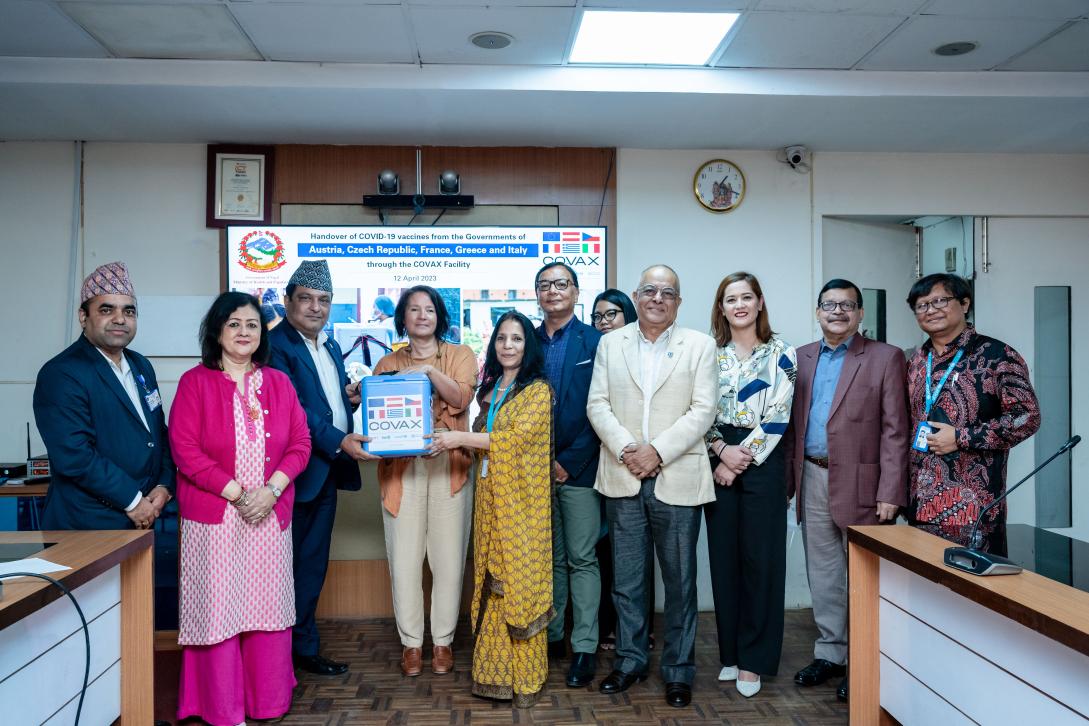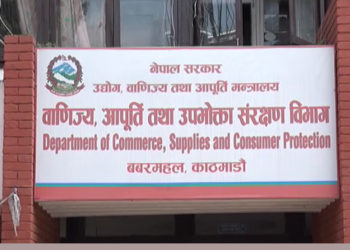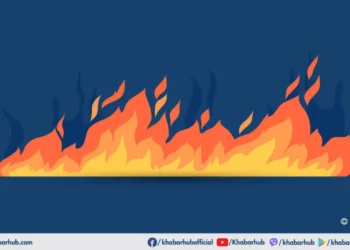KATHMANDU: Nepal received over 1.5 million doses of Pfizer-BioNTech’s bivalent COVID-19 vaccines donated by the Governments of Austria, the Czech Republic, France, Greece and Italy through the COVAX Facility.
Ambassador and Head of the Delegation of European Union to Nepal, Nona Deprez, handed over the vaccines to Dr Roshan Pokharel, Secretary, Ministry of Health and Population at the Ministry on Wednesday.
“The EU and Team Europe are major contributors to the COVAX facility that has done a commendable job in distributing vaccines to different countries around the world,” she said.
“The present donation of vaccines to Nepal under COVAX has come at an appropriate time when the number of daily infections seems to be rising steadily. We hope the vaccines will safeguard the people against COVID, the risk of which is not completely over,” EU Ambassador Deprez, added.
The donation includes 400,320 doses from Austria, 362,880 doses from the Czech Republic, 195,840 doses from France, 348,480 doses from Greece and 195,840 doses from Italy bringing the total number of COVID-19 vaccines donated to Nepal by EU member states to over 8.4 million.
France and Italy have previously donated 685,400 and 663,600 doses of COVID-19 vaccines to Nepal respectively.
Nepal was among the first countries in the world to have launched COVID-19 vaccination efforts in January 2021.
So far, 83.1 per cent of the total population has been vaccinated against COVID-19, with 9,418,479 having received booster shots (until 28 March 2023).
The nation is currently experiencing a rise in the number of daily COVID-19 cases. The vaccine support from the EU member states – Austria, Czech Republic, France, Greece and Italy is expected to support the Government of Nepal’s efforts to provide booster shots – particularly for vulnerable and at-risk groups including people who are older than 60 years or who have health conditions like lung or heart disease, diabetes or conditions that affect their immune system.
“Given the increasing number of daily COVID-19 cases in the country, the Government of Nepal is committed to continuing COVID-19 vaccinations. The timely and generous support from the EU member states is critical in strengthening our vaccination campaign,” said Dr Pokhrel.
“While vaccines are an essential tool in the fight against COVID-19, they are not the only tool. Other measures such as social distancing, wearing masks, and practicing good hygiene are still crucial in slowing the spread of the virus. It is important for everyone to continue following public health guidelines to protect themselves and others, even after receiving COVID-19 vaccine.”
On the occasion, French Ambassador Gilles Bourbao stressed on the need and the efficiency of multilateral solutions in order to combat global problems.
Ambassador Bourbao remarked, “In the fight against COVID-19 pandemic, France has advocated and continues to work for equitable access to the vaccine, which we consider a global public good.”
“Today, France is pleased to donate 195,840 doses of vaccines to Nepal through the COVAX facility in partnership with other European Union Member States and this would further help Nepal expand her vaccine coverage,” he added.
According to him, France has made available more than 120 million doses of COVID-19 vaccine since the beginning of the pandemic, through bilateral donations or through the COVAX facility to various countries, “which we believe is an effective medium to tackle global problems.”
“As the pandemic is not over yet, we are continuing this action of solidarity,” he added.
The COVAX Facility is part of the ACT-Accelerator, and brings together several key partners such as Gavi, the Vaccine Alliance, WHO and UNICEF to ensure efficient and equitable global allocation of COVID-19 vaccines.
“UNICEF is committed to continue our support to facilitate COVID-19 vaccine delivery to Nepal through COVAX and getting those vaccines into people’s arms, leaving no one behind. Including this latest dose-sharing from the EU member states, we have delivered over 44.8 million donated vaccines, in addition to the almost 10 million cost-sharing doses between the Asian Development Bank and the World Bank financing,” said Mishra.
“UNICEF is also working with the Government of Nepal to raise awareness of and trust in the COVID vaccines and engage communities to promote vaccine uptake.”









Comment